Ryan B. Fahey's Blog
April 11, 2025
From Educator to Edupreneur - Court Rustemeyer's Story
September 4, 2024
How To Harness Small Windows of Opportunity (SWO’s)
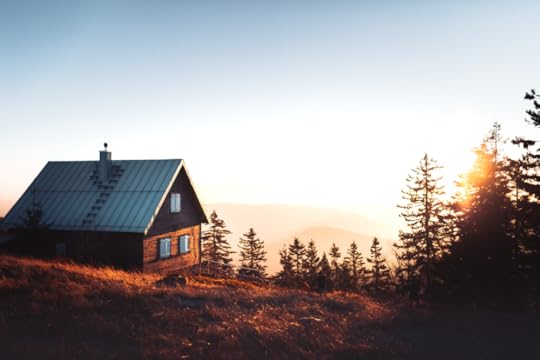
Whether you believe it or not, each day presents a favorable set of circumstances in your life. These circumstances stare you in the face and gives you a chance to react, but first we must be looking.
That bait is what I like to call the “small window of opportunity” or SWO. Every day presents many small unscheduled chances for you to act on appropriately but if you don’t answer in a timely manner that small window of opportunity can be lost forever.
My mom told me that her father once said that if a person dies without having any true regrets, then that person may not have lived at all. This is sage wisdom.
What he meant was that he let some opportunities pass him by during his lifetime which caused him to have deep-seeded regrets later in life. It’s human nature to have regrets because regrets involve active decision-making and sometimes we don’t make the best decisions. Without deviating too far away from looking at these small windows of opportunities, let me tell you a small story that illustrates this point well:
Sometimes those small windows of opportunity only come once in your life. Sometimes they come multiple times, and sometimes they come when we least expect them. Being ready for them and living life with anticipation for those opportunities will train your brain to be ready and on stand by for when they arise.
You can graduate from the best University, know the best people, and have the best car but if you allow other small windows of opportunity such as conversing with a former President to slip by, you may miss it for the rest of your life.
What small windows have you missed lately and how can you prevent that from happening again?
Don’t spend your life stuck in the past with your head down and don’t spend it being too stressed about your future. Loosen up a bit and look for the small windows of opportunity each day and act accordingly. Talk to that stranger, smile as you walk in the park. Leave no small moments on the table.
Ryan
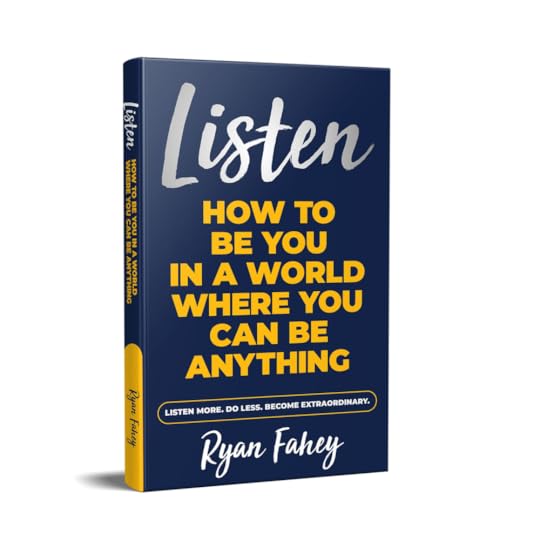
September 3, 2024
3 Strategies to Remove Distractions While Working Remotely

Contrary to what you may think, working remotely comes with many (if not more) distractions than working in a traditional office setting. From Amazon deliveries to the dog barking below your feet, distractions remain rampant.
When you do deep work, you know exactly what those sound, look, and feel like for you. They pull you from a hyper-focused, ultra-productive space and propel you into a reactionary state so you can deal with what’s in front of you. This drives content creators up the wall.
Although distractions are inevitable regardless of whether you work in the office or at home, it’s important that we recognize them for what they are and figure out strategies to reduce them as much as possible.
But why?
For starters, it can take up to 11 minutes to get back to the train of thought we had before the distraction. Insert 3 distractions in 1 hour of your workday and you’ve magically lost 33 minutes of what could have been deep work time. I don’t know about you but I’ll take more product productivity/deep work time, please!
Second, distractions take a toll on our day-to-day mental elasticity — the ability to mentally switch from task to task to task quickly and harmoniously. Once that bandwidth is used up, that can kill your creative genius, stifle your decisiveness and drive productivity down the tube.
In an effort to preserve your focus, mental elasticity, and time, here are three strategies I’ve used which are effective ways to remove distractions and improve productivity when working remotely:
Look, you can’t control everything. If you could the stock market would only ever go up and Uber Eats would always be on time. A better strategy is to focus on mitigating as many distractions as possible in your environment. First, take a mental audit of what the most common distractions are occurring. Write them down if you have to. Once they’ve been aired, it’s time to start thinking about mitigation. For example, can you schedule deliveries during times you aren’t doing deep work to avoid doorbell distractions? Does your deep work time need to shift earlier or later? What distractions are truly necessary? Once you become aware of your distractions, you have the power to change. Remember, even mitigating one distraction per day can save you time and energy and enhance your productivity.
The term “flow state” describes a mental state in which a person is completely focused on a single task or activity.
Experts assert that music can facilitate this and I agree. I also think it’s the type of music that matters more than the music itself. Music has the power to facilitate deep thinking, it can stimulate other parts of the brain, generate creative excitability, and stimulate a higher level of thinking. For me, it can throw me into a hyper-focused state and allow me to be hyper-productive. It can also help me stay detail-oriented for longer periods of time.
You may work to a different frequency than me and have different music tastes, but here are a couple of recommendations if you want some music to facilitate flow state and deep work while working remotely. Once you find a frequency that works for you, create an entire playlist around it and save it for ease of access.
My productivity changed the moment I turned off my X notifications. During the pandemic, I got into the habit of following more accounts and receiving notifications in order to stay current with what was happening. The experiment worked for a while but eventually, it became too much and was impacting my ability to hyper-focus on my work. I’ve also removed Facebook notifications and notifications from other apps on my phone to avoid checking them as often. I’ve also done the same with my email (across all devices) and put things on silent mode as much as possible.
While I recognize that's not always possible for some, finding ways to remove superfluous notifications is a productivity hack for the ages. In a world that craves micro doses of dopamine through social media notifications, I argue that silence and good work remain more important. Ask yourself what needs to be turned off on your own devices so that you can turn on your ability to hyper-focus, and be fully committed to your craft so that you can bring your most creative self to your vocation.
While these strategies work wonders for your remote work productivity and overall wellbeing, it’s equally as important to test and figure out what works best for you based on your reality. For example, do you have kids at home? Do you have on a noisy street? Do you have a partner that works remotely with you? Many things can impact our day-to-day working life and it’s important to go with the flow as much as it is important to have solid systems and routines in place.
For more well-being and productivity tips to support working remotely, check out this book by clicking the image below:
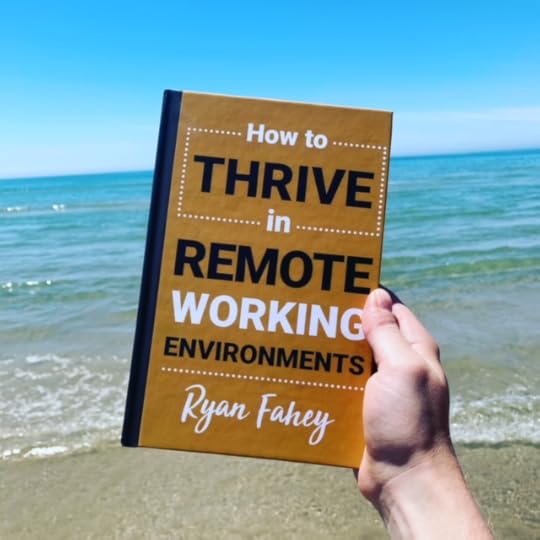
Ryan
January 25, 2023
Her Best Decade: Inspiration from Maya Umba
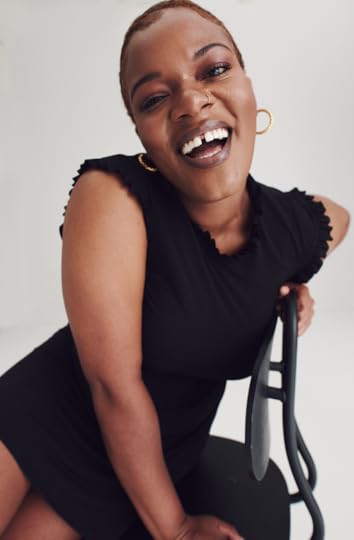
Photo credit: Photo credit: ,Nikki Ormerod
Maya Umba is a young leader from Ottawa. She is a model, a singer, and an all-around great human being bringing her light to the world each day. I recently sat down with Maya to talk about the impact reading Your Best Decade had on her life. Here is what Maya had to say.
What Impact has #YourBestDecade (YBD) left on your life?
Serendipity is what I experienced when I grabbed the last copy of Your Best Decade (hereafter, YBD) off the shelf at Indigo. From that moment forward, something in me shifted for the better. When I first read YBD, I was entering a new chapter in my life. I was a recent graduate from the University of Toronto, I had just moved back to my hometown of Ottawa, and I was starting my first big girl job at a national sports organization.
All these great milestones were happening in my life, yet I didn’t take a moment to reflect on if this was what I really wanted for my life. After careful introspection, I discovered that I was merely going with the flow of the life script assigned to us all—successfully complete school, get a “good” job, then start a family. YBD, however, forced me to reflect on my true desires for my life. I got my big girl job but I still felt unfulfilled with my life so I decided to make a change.

In 2021, I got scouted as a fashion model. I am so grateful for modeling as it showed me that I am a very creative person and that I enjoy being in front of the camera. Reading YBD, simply led me to dig deeper and I realized that I wanted to do more than pose in front of the camera…I wanted to sing! My childhood dream was always to be a professional singer but I let fear and doubt live in my mind. Through YBD, I allowed myself to burn the boats, quit a retail side job, and create time for building the foundational blocks of my music career (vocal coach, songwriting, writing a music business plan, etc). The impact of YBD was that final push that I needed to fearlessly pursue the realization of a childhood dream.
Photo credit: ,Chris Nicholls
Which chapter most applied to you and why?
For me, I’d have to say chapter 11, The Hungriest Person In The Room, as its lessons are now with me for life. On page 149, Ryan writes, “Simply put - be diligent. Be committed. Be dedicated. Learn every day. Ask the right questions and don’t take no for an answer. Be bold. Be brave.”. That really clicked for me.
For a long time, I thought that to obtain success I must have the highest IQ in the world. However, I realized that this thinking was false. Of course, it helps to be knowledgeable but, success comes to those who give 100% in all that they do—consistently. Moreover, I have to wholeheartedly believe in myself and create a thorough plan that would help me achieve all that I desire. This chapter also highlighted never giving up, no matter how difficult the journey may be; blocking out any negative (self) talk, and keeping my eyes on the prize. All in all, the message of this chapter was that hard work will always trump having the highest IQ.
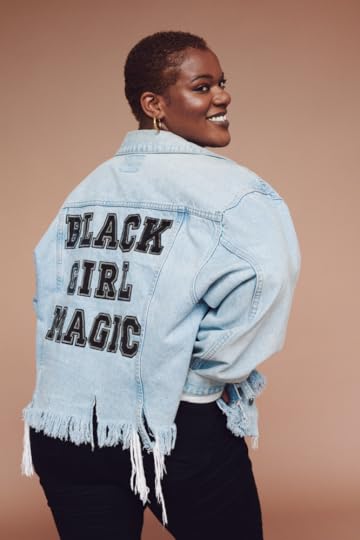
What most excites you about living out YBD?
What most excites me is that I am unapologetically myself while living out YBD. For a long time, as I followed the life script, I was merely seeking external validation from my parents and teachers. I wasn’t seeking validation from myself because I was paralyzed by the fear of disappointing others’ expectations of me. Living out my best decade is me being brave to pursue what I want for my life but, also not being afraid of inevitable disagreeing by some people. I am humble enough to understand that not everyone is going to agree with all that I say or do yet, I love myself enough to not care about that.
Photo credit: ,Nikki Ormerod
If you could describe this book to someone in three words what would you say?
Inspirational Practical HearteningWhat is one major takeaway you have from the book?
Through the author’s various personal stories, quotes, and book recommendations, the greatest takeaway was to pursue the “thing” that I love to do the most. I remember I used to always roll my eyes when self-development gurus would say to first figure out your passion(s). I’d roll my eyes because I believed I could never be a professional singer. But they were all right, including Ryan in how he frames it as living out your YBD. I believe many people already know their passion(s) but they simply scoff while telling themselves, “Oh but that’s never going to happen”, just like how I once told myself. YBD is about ignoring that negative voice, believing in yourself, and pursuing that “thing” --- no matter how afraid you are.
When you envision living out YBD, what does it look like?
Fully Living and Embracing My WorkWaking up every day to do what I love, every second of my waking hours, would award me with purpose, happiness, and contentment. In my YBD, I don’t want work to feel like monotonous “work” that pays the bills; I want it to be the tireless pursuit of my passions. Then, in addition to this pursuance, I will be monetarily compensated for my hard work.
Consistent Hard WorkWhat’s the point of life if I am not growing? Growth, in my perspective, is simply consistent hard work. I want more than accolades and monetary gains, I want to be an efficient, kind, and well-rounded human being. I want to master myself in the Big Three aspects of my life —relationally, professionally, and personally.
Positive LegacyFinally, money means nothing once you're dead. My legacy must be more than my net worth; it must be about my humility, compassion, and love. There’s enough chaos in the world, so I want to leave my bit of sunshine before my time expires. Whether it be through my art or my heart, living out my best decade is me making a positive connection with every human being that I meet.
For everyone out there who hasn't read YBD yet, what would you say to them?
This book will help you want to be brave because the author’s voice is like a kind friend who wants you to realize your maximum potential. YBD is more than a book, it’s a lifestyle. One that encourages the reader to show up as their authentic self, fearlessly pursue their passion(s), and be prepared for consistent hard work along the way.
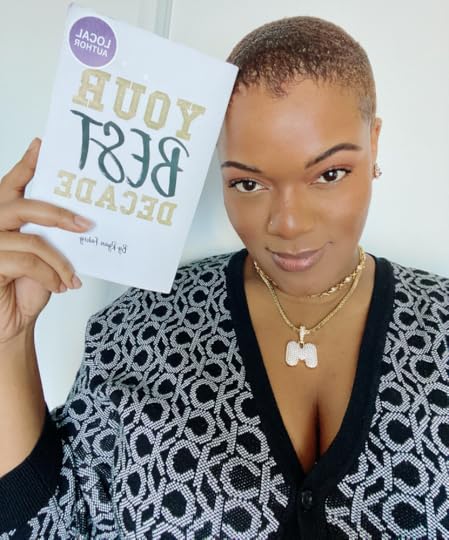
February 26, 2022
#HerBestDecade: Emma's Journey
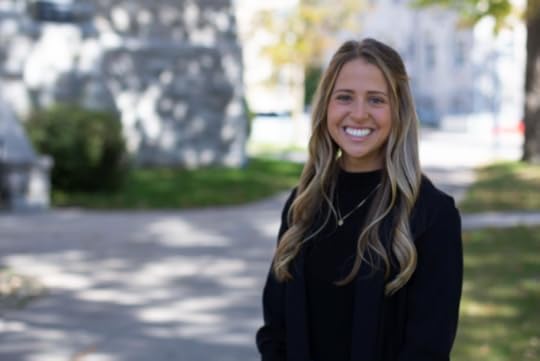
I recently sat down with Emma Boudreau to get her perspective on #HerBestDecade and to hear her thoughts on how her journey is going. Here's what she had to say:
Emma, what Impact has #YourBestDecade (YBD) left on your life?
The impact that ‘Your Best Decade’ has left on my life is that it has taught me moving forward that I want to reflect my values in everything I do and all the choices I make - from my personal life to my professional life, and everything in between.
Which chapter most applied to you and why?
The chapter that applied to me the most was Chapter 9: Abandon the Comfort Zone. Growing up in such a small town, I became familiar with my surroundings pretty quickly. I had most of the same teammates across various sports games, I had most of the same classmates from grade primary to grade 12, I lived in the same house for most of my life, I was comfortable, to say the least. When it came to applying to schools for university, I chose the comfortable decision for my undergrad which was to live at home and go to St.F.X. My first ‘uncomfortable’ decision where I was forced to ‘Abandon my Comfort Zone’ wasn’t until I was accepted to various universities in Ontario for my Masters in Occupational Therapy. At this point I was on a waitlist for Dalhousie University (in Nova Scotia), so all three of my options were in Ontario. Making this decision to leave my roots in Nova Scotia and begin a new life in Kingston, ON was a scary thought with no family nor friends in Ontario. However, I am happy to admit that moving here has taught me how to be resilient through the countless Ontario-wide lockdowns, it has taught me how to be independent, it taught me how much I value health and the ability to move my body for both my physical and mental health - I have been able to meet new roommates and classmates, spend time with like-minded people, and join various teams through the Kingston Sport and Social Club (KSSC), and it taught me that no matter how far I am from my family, I will always have their support.
What most excites you about living out YBD?
I look forward to building up my own legacy in Kingston, ON, like I did in my small town of Antigonish over two decades of my life. As things begin to open more with Covid-19 restrictions easing in Ontario this month, I look forward to getting more involved in the community. I hope to get involved in coaching a kids’ sports team, working for SpinCo when they open later this Spring, push myself in some different physical competitions (i.e. road races, mud hero, half marathons), and begin my career in Occupational Therapy in the Fall, all decisions which align with my personal values.
If you could describe this book to someone in three words what would you say?
Just do it. As a female athlete who has always been motivated to chase her dreams, to take chances, and eventually took a big leap moving away

from my small town and towards a bigger city (like Ryan), I found I was able to relate on many levels throughout this book. I enjoyed how easy it was to read, I had a hard time putting it down, and the reflection piece and personal connections he offers for the readers throughout this book are exceptionally rare. I would recommend this book to anyone who needs a little extra push, someone who needs some pointers on how to set yourself up for success, and an opportunity to reflect on your personal life and values in ways you may have never done before.
What is one major takeaway you have from the book?
One major takeaway I have from the book was this quote that really stood out to me from Chapter 11: The Hungriest Person in The Room. I actually wrote it down in my ‘Best Decade Journal’ while reading the book. The quote was about being Fully Present, “There is nothing worse than trying to entertain an important conversation with someone who cannot seem to disconnect from their phone”. I find that most people in society these days take ‘in-person’ conversations and time spent with others for granted, especially when most of that time is spent scrolling through various social media platforms, video games, text messaging, and pointless apps. Something I have really been trying to focus on, and encouraging those around me to do is to live in the moment. There was also a quote in this chapter stating this fact “Learn from the past. Plan for the future. Live in the present”. This is a quote I hope to put up on the wall of my future office because I believe wholeheartedly that these are words I want to live by. When I am with others, I want them to have my full attention. When I am talking to my coworkers and/or clients, I want them to know I am listening. When I am with my family, I want them to know that their time and their stories are being respected. I believe these quotes are an extremely important piece of advice, especially for young adults who are at such a critical point of their lives.
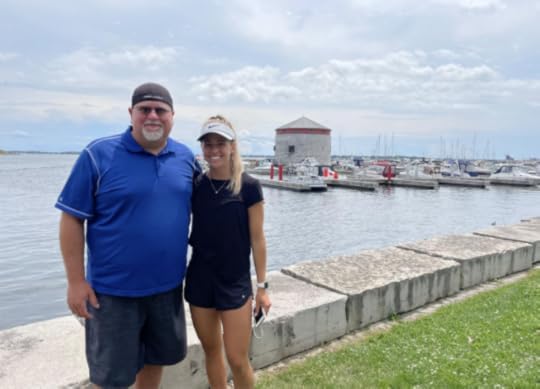
When you envision living out YBD, what does it look like?
When I envision living out my best decade, this looks like…
Me pushing myself to new limits and bringing others around me to my level. A specific example of me already putting this into action is that I signed up for my first registered half marathon at Ottawa Race Weekend and I convinced my brother, his girlfriend, and one of my good friends to sign up with me to do it the same day as well - accountability makes a huge difference when it comes to training and I look forward to the day we all cross the finish line together at the end of May.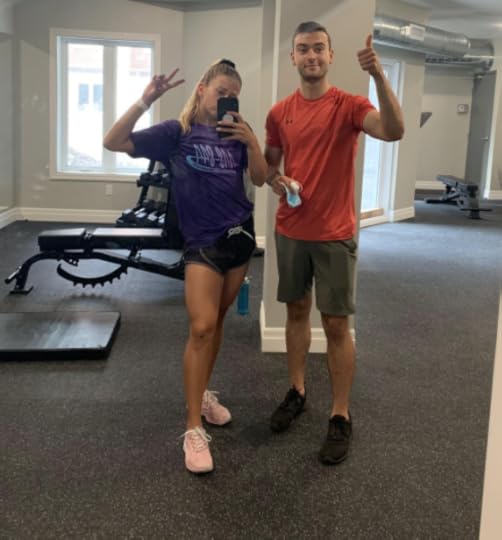 Being aware of my comfort zones and trying to challenge myself in different areas of my life. For example: Professionally - I would like to work on updating my LinkedIn, Socially - I would like to make plans with friends twice/week, Physically - I would like to get on my bike 4 times per week, run once, and do 1-2 weights workouts each week. I want to get more involved in the Kingston community and begin making my own legacy in this new town I have called home for the past year and a half. I want to work on making more connections with local organizations, getting involved in teams and activities I am passionate about leaving a positive impact by the end of my Kingston chapter.
Being aware of my comfort zones and trying to challenge myself in different areas of my life. For example: Professionally - I would like to work on updating my LinkedIn, Socially - I would like to make plans with friends twice/week, Physically - I would like to get on my bike 4 times per week, run once, and do 1-2 weights workouts each week. I want to get more involved in the Kingston community and begin making my own legacy in this new town I have called home for the past year and a half. I want to work on making more connections with local organizations, getting involved in teams and activities I am passionate about leaving a positive impact by the end of my Kingston chapter.  I plan to be more purposeful and genuine with the actions and decisions I make. I want to make everything I do meaningful, I want to really get to know those around me and listen to their stories. I want to focus on the small gestures and having genuine conversations with people - and by adding this small amount of significance to personal conversations with those around me, they may add significance to my life in return. A common saying is, ‘What goes around, comes around’. I want to live my life with intention. I have begun the first step which is writing down my values and how I plan to live by them, now it is just a matter of time and putting them into action.
I plan to be more purposeful and genuine with the actions and decisions I make. I want to make everything I do meaningful, I want to really get to know those around me and listen to their stories. I want to focus on the small gestures and having genuine conversations with people - and by adding this small amount of significance to personal conversations with those around me, they may add significance to my life in return. A common saying is, ‘What goes around, comes around’. I want to live my life with intention. I have begun the first step which is writing down my values and how I plan to live by them, now it is just a matter of time and putting them into action.
For everyone out there who hasn't read YBD yet, what would you say to them?
For those who haven’t read ‘Your Best Decade’ yet, I would encourage them to do so. It allowed me to challenge my thinking, to have a better understanding of how I can positively impact the lives of those around me while surrounding myself with people who have a positive impact on me as well. I found the examples and personal connections Ryan made throughout the book to be a powerful tool to keep readers accountable and I thoroughly enjoyed every single page of this book. Since getting my hands on this book, I have already purchased it for a friend who I believed would benefit from the self-reflection and goal-oriented/future-oriented layout of this book!
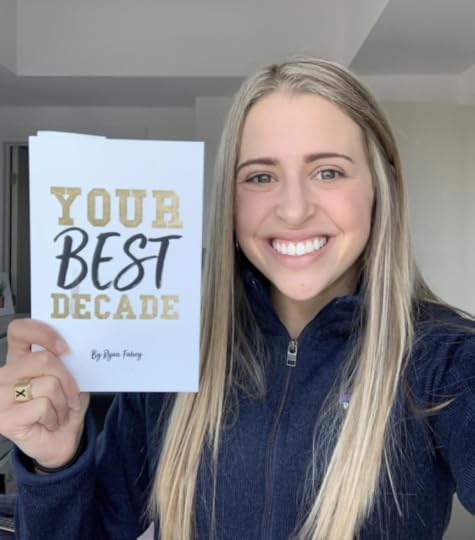
Emma
June 23, 2021
Why Being An Early Adopter Is Not Always Glamorous
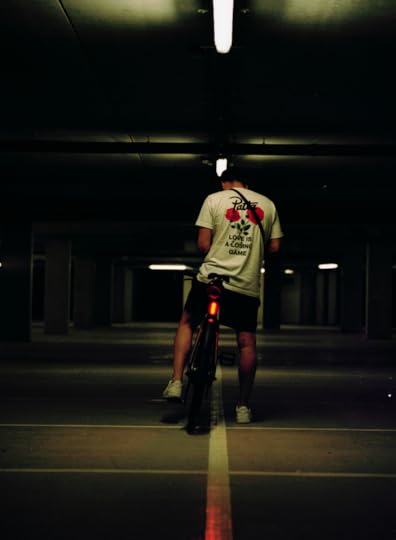
I recently succumbed to the social conversations happening around the most polar cryptocurrency on the market and bought it. Yes — I am talking about Bitcoin.
As soon as I purchased my first million Satoshi’s I looked around my apartment, then out from the deck, thinking I just discovered the golden key in a Caramilk bar.During my run the next morning, I pranced around the yacht club with a pep in my step like I had just won the lottery. My head was high and I felt invincible.
Then, Elon Musk tweeted and my golden key/lottery ticket suddenly felt like a really bad cold that just wouldn’t go away.
All the energy surrounding Bitcoin fled from my veins.
All the feelings of glamour that came with being an early adopter faded — quickly.
I felt lonely — almost like the whole house of cards fell and I was the only one left on the bus riding around all by myself without my community.
After a few days of feeling in the dumps, I realized something really interesting when I was reflecting in my journal. I realized that this was not the first time I was an early adopter of something that barely anyone seemed to understand. In fact, I had been here multiple times in my life.
While I could go on about those specifically, your time is valuable so I will stay on point.During these other experiences when I was the first 10–15% of folks who “got it” or “bought in”. I remember meeting so much resistance from the middle. As with anything one believes in, I just kept pounding the pulpit and standing firmly behind my points, philosophy, or belief in a product, service, or next big innovation. At times it felt lonely, I felt a wee bit crazy and I felt a bit out of place.
The early adoption of Bitcoin was no different.
The truth is, if you are an early adopter, it can be lonely and not always glamorous. It can feel like you are all alone in the desert and no one is there with you. In today's world, platforms like Twitter can help with that but the truth is, it is not always glamorous, validating, or easy. If it was, literally everyone would be doing it.
So, for all you early adopters out there, keep being you.
Keep pounding the pulpit. Keep believing. Don’t stop because someone tweets a broken heart or because 9 out of 10 people think you are crazy.The world needs you to challenge the norms, to create new things, and to believe in new possibilities when the middle seeks the comfort of the middle. When everyone is screaming to go left, hang a right. If you are wrong, learn, reflect, and accept the consequences.
However, if you are right — tell the world!
If you are an early adopter in the cryptocurrency space and want to connect, drop your Twitter handle below in the comments. I would love to connect!
Ryan
May 30, 2021
Why You Should Be Swinging For The Fences
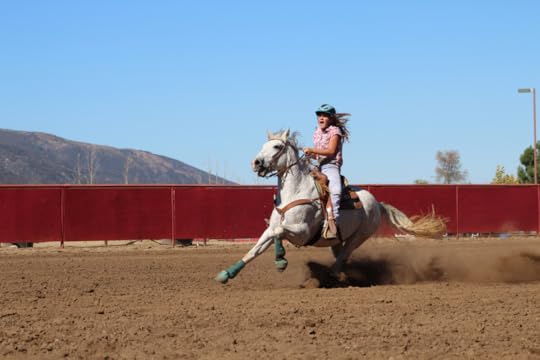
“As a kid you don’t dream about game three of the playoffs. We all dream of game Seven. So that is what we look forward to.” — Brent Burns
In sport, if you can’t execute at the highest level during game seven of the playoffs, you won’t win.
In business, if you aren’t growing your business is slowly dying.
In life, if you aren’t living according to your highest values, you are running from success.
In relationships, if you aren’t investing in others you are blocking your own legacy.
In each of these areas of life (professional, personal, relational) sometimes you have to step up to the plate and swing for the fence. Nothing good happens when you are sitting on the bench and so to succeed in these three areas, you need to ‘swing away’.When you swing away for the fences in these areas, three things are bound to happen.
You strikeout. You pop the ball up and get out. You crush it over the fence.
I have done all three. I still do all three. I will continue to do all three.
Many of us get enough courage at one time or another to step up to the plate in one area of our lives. When we get excited and filled with self-confidence, we swing for the fence…..Only to have option 1 or option 2 happen. We strike out or fly out and are forced to retreat to the bench and call it a day.
When this happens, human nature tells us to avoid that failure in the future. So we begin swinging less for the fence and instead, sit on the bench living vicariously through others who are stepping up and swinging away each day.
Or, we get enough courage to step up to the plate again but shift our strategy from swinging for the fence to just hoping to get on base. This mindset is a slippery slope. If either of these approaches resonates with you, welcome to 95% of the world. You are not alone!
I am here today to remind you that a strikeout is nothing more than a strikeout and a fly ball is nothing more than a fly ball. Treat these as a one-time occurrence.
“If you can greet triumph with disaster and treat both imposters just the same.” — Rudyard Kipling
We make ‘getting out’ into a larger-than-life distraction which then deters us from our original “why” behind the reason why we stepped up to the plate to swing for the fence in the first place.
That mental deterring holds us hostage as we wallow in the failure.
We begin to drift away from our “why” and retreat to the safe space, on the bench.
I am here to tell you to do the opposite. To swim back against the waves rather than drifting away aimlessly from the shore.

The other morning I realized something profound. I realized that the reason why I have the marriage I have, the career I have, and all the many blessings I have in my life is all because I have stepped up to the plate and swung for the fence many times over.
In those at-bats, I have had many strikeouts and fly balls but I decided early on in my life that these would not distract me from stepping up in the future hoping to hit that home run. The reality is that if we doubt, doubt wins. If we have courage, courage wins. Simple as that.
Because of this mentality and approach to life, I have also hit many home runs. No, actually I smashed many balls out of the park.
A prime example:I wrote my first book three years ago. I swung for the fence and I hit a fly ball. I popped out and retreated to the bench with little success….But I learned a ton. I studied the pitcher (from the bench) and worked mentally to build up enough confidence to face that same pitcher (and all the curve balls) a year later in publishing a second book.
And I knocked that sucker out of the park.I could have been so deterred from ‘my first book failures’ that I remained on the bench. My narrative easily could have been: “Well, I gave it my best shot and it’s time to move on.” Instead, I studied, listened, learned, and built up enough confidence to swing for the fence a second time.
I can think of many other examples relationally, personally and professionally of this unfolding in my life but I want you to think about all the times you stepped up to the plate in these areas of your life.
Did you strike out? What was that like for you?Did you hit a fly ball? How did that feel?Did you crush the ball over the fence? How did that feel compared to flying out?
My encouragement for you today is this — swing away.
Then swing again.
Keep swinging.
Be fearless.
Ryan
March 10, 2021
5 Common Mistakes To Avoid When Publishing Your Book

Publishing a book in the 2020s may be one of the most daunting adventures you take.For the past three years, I undertook multiple book publishing projects which seen many high and lows throughout the process and the purpose of this blog is to share those learnings with you.
All emotions aside, there were five key lessons that I learned through the book publishing process that I want to share with folks on Medium. As an author with lived experience through these mistakes, my hope is that others will not replicate these five things below.
Publishing Too EarlyPeople warned me that this may happen, but at 28 years of age, I did not fully grasp this concept. For me, I wanted to get my book into the hands of readers as fast as possible. This was my #1 mistake. In hindsight, I should have waited and fine-tuned my manuscript a bit more. I have since done this but I wish I had waited a bit longer knowing time was on my side at 28. When you get to the point with your book where your manuscript is finished, I recommend taking a break and reflecting on your manuscript in great detail. Give it time. Make sure you are 100% satisfied with it before you send it out to the world.
Knowing Your MarketI am still making this mistake as I write this. Probably because I am all about the organic process. I have believed from day one of writing my book that the process should be organic and that “everything will fall into place”. Although that philosophical approach can be a good thing in that it has allowed my previous books to enter into many markets, it hasn’t allowed me to fully narrow in on my true market….yet. If I could go back and do it all over again, I would probably tighten up this marketing strategy sooner so I could better corner my market.
Distribution ChannelsIn-person transactions are quickly becoming a thing of the past. With the COVID-19 scare and social distancing, online transactions will continue to boom and the late adopters to places like Amazon will begin to arrive there. This includes online book sales as well. When I first published, I thought there were only a few online distribution centers like Amazon and Apple Books. Little did I know there are actually 30,000+ online book resellers (see top 15 list below). Getting familiar with these platforms and engaging with these companies on social media prior to launching your book will allow you to have greater success in book traffic and sales. Know the online distribution players!
Life Will Not Change DrasticallyThe day I hit “publish” was one of the coolest days of my life. I couldn’t believe it was actually happening. The day I got my first book in the mail was even cooler. All of those highs were very special and I am grateful for those moments. However, life really doesn’t change when you become a published author. I compare it to winning a Nobel prize. After you win it, many recipients often report a lack of motivation and creativity. Life doesn’t really change much. The same was true for me. It was kind of a “business as usual” post-published life for me and still remains this way today. You may have a different experience than I did but just be prepared for all emotions and little actual change to your life.
Friends Won’t Read ItIf I had a dollar for every time a friend said they were going to buy or read one of my books I would be rich. You need to have thick skin when you publish your book. People closest to you probably won’t read it — but don’t take that personally. People are busy and there are a million great books on the market. Just smile, nod, and thank your friends for thinking of you and your book. The rest is really out of your control.
Ultimately, I am grateful to have learned these 5 lessons the hard way through publishing multiple books and it has been an incredible journey. I only hope that in reading this, when others embark on writing their book, it produces even greater results that much quicker.
Ryan
January 30, 2021
An Exclusive Interview With Canadian Author Brandi Heather
I recently sat down with former client Brandi Heather, who is the author of the new book, Return To Play, to hear her reflections on her writing experience and what it feels like to be a Best-Selling author. Here is what Brandi had to say:
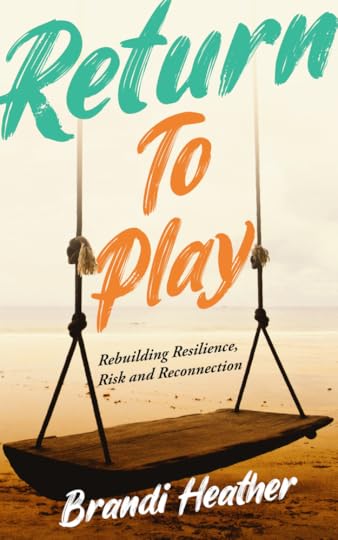 What inspired you to author your first book?
What inspired you to author your first book?
You know when you relate a story to people and they respond back, “oh my goodness, I had no idea other people felt that or thought that, or experienced that? That is what I wanted to write down, so that maybe just one person would read it and think, “wow...that is where my gifts have been hiding”. They were there all along. I love a book that reminds us that we already have so many skills and talents, but we spend so much time trying to get things “right” that sometimes we lose the best part of ourselves.
To be honest, worry also made me move to write the book. Over the past twenty years, I have seen, experienced, and listened as people of all ages and abilities are increasingly struggling with coping and resilience. The mental health crisis, increasing division, and fear of diversity and difference, extreme loneliness, and an ever-increasing inability to cope with the through challenge and change, make me think, what can I do? The book is not full of solutions, it is full of reimagining the journey, what we can do from birth to death to use our natural drive to play as a tool for resilience, facing risk, and finding ways to reconnect.
Describe how your writing space looked and felt?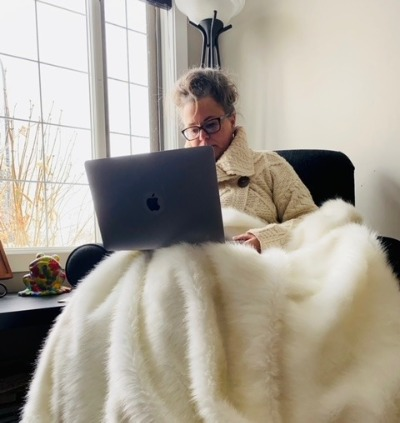
This is funny, when Ryan first asked me about creating this “space” on one of our coaching calls, my husband said, “your space is everywhere!!” But my favorite space to write was on a comfy chair in my front room that gets sunlight all day. I would twist myself into the chair with my laptop and faux polar bear blanket and write. I tried writing in my office, but deep words find more meaning in comfort for me.
What was your writing schedule like when you were writing Return To Play?If you read the book you will see that structure and stringency are not my “gifts”, but I would try and write every day. Ryan’s diligent schedule and knowing we would connect each week kept me motivated to write with purpose. The content was the accumulations of notes for a lifetime. I often have thoughts in the moments when my brain is not trying to create “on purpose”. So, many days it was just a matter of constructing from already set ideas and research.
What do your loved ones think about having an author in the family?My mom is the best. When I told her I was writing a book, she said “of course you are!!??”, she has always been amazed at how much I can keep going at one time. At the time, like so many others, I was working to keep new business growth in the middle of a pandemic, I had my daughter Megan learning online at home, and struggling at times with my own health, etc. My husband, who has this unwavering confidence in me, is so excited for me to share my voice with others, he knows that is where I find my smile. My whole family is so proud.
What was one of the most surprising things you learned in crafting “Return To Play”?I found out so much about myself - but one of the biggest realizations was that in order for me to grow, and imagine and do the things that I speak about, risking with new ideas, trying even when you have fallen down, etc. That takes people… The pandemic has left us at a distance from people, and therefore creative people like me struggle to do what comes naturally without being with people. There were times during writing where I would take my laptop to the park and write, just so I could watch families, people walking on the pathways, etc. I realize that is my fuel, and that social distance also keeps me at a creative distance. I have found new ways to play with groups online, watch them create and connect, but it took me a while to find my place there.
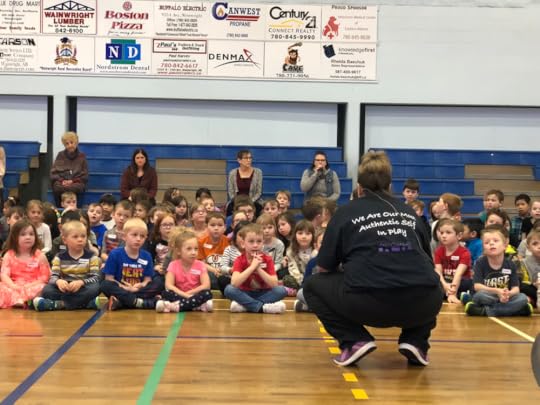 What gave you the confidence to finally publish your book?
What gave you the confidence to finally publish your book?
It’s called Interdependence - the idea that everything in nature is connected to and depends on every other thing (Cambridge English Dictionary). I believe nothing brave is accomplished without others. My confidence is created because so many people believed that I could and should write it. This includes many days of “am I enough?”, “what if I'm wrong?” “maybe no one cares”, etc. That was always answered by someone who believed it was possible and believed it did matter. Late-night texts, and calls, and yes a few tears, I am so lucky to be surrounded by people who hold me up on the days I can’t find the strength to stand...grateful is not enough.
How did you come up with your book title?Ryan helped me with this - so many iterations, I knew what I wanted it to say, I just needed a “word tailor” to help stitch it together. Ryan’s work over our coaching calls helped me come to this awesome iteration and now the title becomes a statement. “Return To Play” is not just a title, it is a suggestion and a hope for change.
What makes your book so unique?There are so many incredible play professionals and diversity and inclusion professionals in the world, but what makes the book different is that I see play as a tool and a strategy for the hard things, inclusion, disconnection, loneliness, mental health. The book reminds us that we are capable of addressing ideas, people, and spaces with nothing in common and create bridges and connections with tools that we already have but may have left on the playground. Negotiation, managing conflict, breaking down barriers to inclusion, finding belonging through a crisis, building answers to seemingly insurmountable challenges by recognizing the importance of creativity and innovation found first ...in play.
Who does your book best speak to?My book speaks to the educator who has lost their play, like that toy you left at the park, it's buried under the weight of unreal expectations, standardized “one size fits all” education and lack of empathy as well as connection.
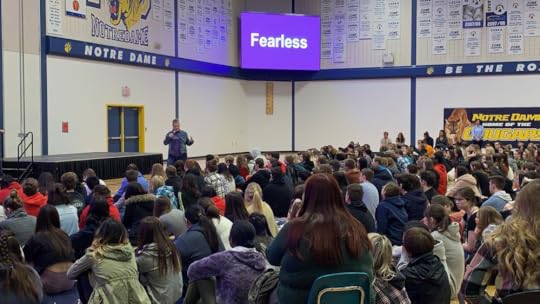
It also speaks to the caregiver in every space who works tirelessly to find new and creative ways to heal and motivate themselves and those they work with. I am a teacher by trade, turned entrepreneur by choice, so I hope it speaks to those who have inside them the best ideas, and who wonder if they have what it takes to make it come to life...I hope it whispers to humanity...you are enough, go play.
Where can readers buy your book?Right now you can buy my book on Amazon , I’m working on more spaces to make it available. People can contact me directly for discounts for educational teams and schools as well. You can email me at brandi@amped2play.com , or find me on the website returntoplay2021.com (available Feb 1., 2021) or on FaceBook @returntoplaytoday.
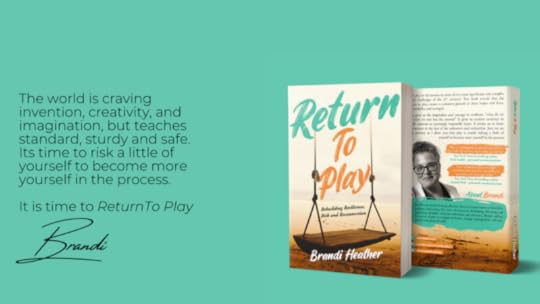
An Exclusive Interview With Canadian Author Brandi Heather
I recently sat down with former client Brandi Heather, who is the author of the new book, Return To Play, to hear her reflections on her writing experience and what it feels like to be a Best-Selling author. Here is what Brandi had to say:
 What inspired you to author your first book?
What inspired you to author your first book?
You know when you relate a story to people and they respond back, “oh my goodness, I had no idea other people felt that or thought that, or experienced that? That is what I wanted to write down, so that maybe just one person would read it and think, “wow...that is where my gifts have been hiding”. They were there all along. I love a book that reminds us that we already have so many skills and talents, but we spend so much time trying to get things “right” that sometimes we lose the best part of ourselves.
To be honest, worry also made me move to write the book. Over the past twenty years, I have seen, experienced, and listened as people of all ages and abilities are increasingly struggling with coping and resilience. The mental health crisis, increasing division, and fear of diversity and difference, extreme loneliness, and an ever-increasing inability to cope with the through challenge and change, make me think, what can I do? The book is not full of solutions, it is full of reimagining the journey, what we can do from birth to death to use our natural drive to play as a tool for resilience, facing risk, and finding ways to reconnect.
Describe how your writing space looked and felt?
This is funny, when Ryan first asked me about creating this “space” on one of our coaching calls, my husband said, “your space is everywhere!!” But my favorite space to write was on a comfy chair in my front room that gets sunlight all day. I would twist myself into the chair with my laptop and faux polar bear blanket and write. I tried writing in my office, but deep words find more meaning in comfort for me.
What was your writing schedule like when you were writing Return To Play?If you read the book you will see that structure and stringency are not my “gifts”, but I would try and write every day. Ryan’s diligent schedule and knowing we would connect each week kept me motivated to write with purpose. The content was the accumulations of notes for a lifetime. I often have thoughts in the moments when my brain is not trying to create “on purpose”. So, many days it was just a matter of constructing from already set ideas and research.
What do your loved ones think about having an author in the family?My mom is the best. When I told her I was writing a book, she said “of course you are!!??”, she has always been amazed at how much I can keep going at one time. At the time, like so many others, I was working to keep new business growth in the middle of a pandemic, I had my daughter Megan learning online at home, and struggling at times with my own health, etc. My husband, who has this unwavering confidence in me, is so excited for me to share my voice with others, he knows that is where I find my smile. My whole family is so proud.
What was one of the most surprising things you learned in crafting “Return To Play”?I found out so much about myself - but one of the biggest realizations was that in order for me to grow, and imagine and do the things that I speak about, risking with new ideas, trying even when you have fallen down, etc. That takes people… The pandemic has left us at a distance from people, and therefore creative people like me struggle to do what comes naturally without being with people. There were times during writing where I would take my laptop to the park and write, just so I could watch families, people walking on the pathways, etc. I realize that is my fuel, and that social distance also keeps me at a creative distance. I have found new ways to play with groups online, watch them create and connect, but it took me a while to find my place there.
 What gave you the confidence to finally publish your book?
What gave you the confidence to finally publish your book?
It’s called Interdependence - the idea that everything in nature is connected to and depends on every other thing (Cambridge English Dictionary). I believe nothing brave is accomplished without others. My confidence is created because so many people believed that I could and should write it. This includes many days of “am I enough?”, “what if I'm wrong?” “maybe no one cares”, etc. That was always answered by someone who believed it was possible and believed it did matter. Late-night texts, and calls, and yes a few tears, I am so lucky to be surrounded by people who hold me up on the days I can’t find the strength to stand...grateful is not enough.
How did you come up with your book title?Ryan helped me with this - so many iterations, I knew what I wanted it to say, I just needed a “word tailor” to help stitch it together. Ryan’s work over our coaching calls helped me come to this awesome iteration and now the title becomes a statement. “Return To Play” is not just a title, it is a suggestion and a hope for change.
What makes your book so unique?There are so many incredible play professionals and diversity and inclusion professionals in the world, but what makes the book different is that I see play as a tool and a strategy for the hard things, inclusion, disconnection, loneliness, mental health. The book reminds us that we are capable of addressing ideas, people, and spaces with nothing in common and create bridges and connections with tools that we already have but may have left on the playground. Negotiation, managing conflict, breaking down barriers to inclusion, finding belonging through a crisis, building answers to seemingly insurmountable challenges by recognizing the importance of creativity and innovation found first ...in play.
Who does your book best speak to?My book speaks to the educator who has lost their play, like that toy you left at the park, it's buried under the weight of unreal expectations, standardized “one size fits all” education and lack of empathy as well as connection.

It also speaks to the caregiver in every space who works tirelessly to find new and creative ways to heal and motivate themselves and those they work with. I am a teacher by trade, turned entrepreneur by choice, so I hope it speaks to those who have inside them the best ideas, and who wonder if they have what it takes to make it come to life...I hope it whispers to humanity...you are enough, go play.
Where can readers buy your book?Right now you can buy my book on Amazon , I’m working on more spaces to make it available. People can contact me directly for discounts for educational teams and schools as well. You can email me at brandi@amped2play.com , or find me on the website returntoplay2021.com or on FaceBook @returntoplaytoday.




